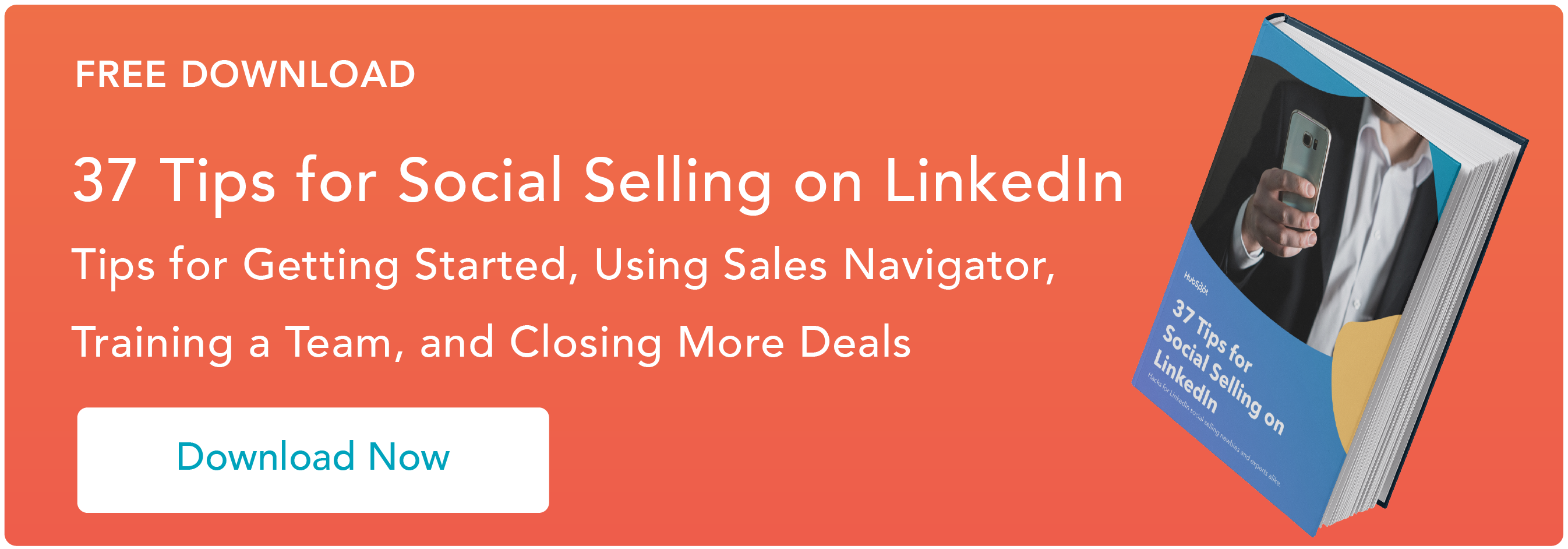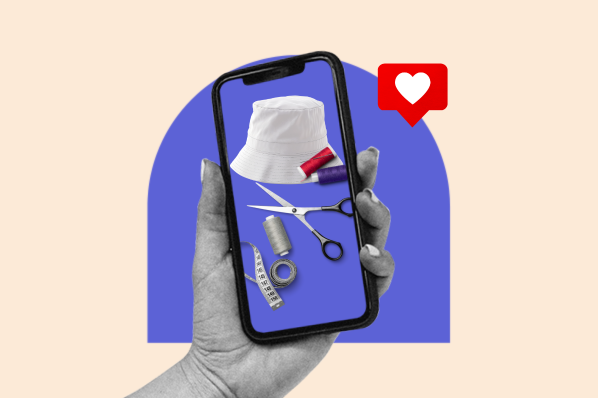When you think of reaching prospects on social media, you usually assume it's a marketing strategy — but did you know that salespeople can use those same channels to their advantage? Sales professionals can leverage social networking to connect and build rapport with potential leads through a strategy known as social selling.

However, this strategy isn't easy to implement if you aren't already familiar with the ins and outs of social media networking. In this post, we'll discuss the biggest social selling mistakes your team should avoid so you can get more out of your profile.
Social Selling Mistakes
- Treating social networks as promotional channels.
- Not investing in social selling training.
- Not using digital tools to aid in social selling.
- Not optimizing your social media profile.
- Trying to sell without establishing trust.
- Under-researching prospects.
- Not addressing your target audience's pain points.
- Randomly sharing irrelevant content.
1. Treating social networks as promotional channels.
It's easy to run a paid ad on social media, but that's just one feature social networks offer. Social media is a place to join and connect with others, and it's the same for business professionals.
Approach social media like how you would approach an in-person networking event. Connect with people you think can benefit from getting to know you and your business. Hold conversations with them that can capture their interest. From there, you can begin to sell to them after building those relationships and community.
2. Not investing in social selling training.
You can't expect high results from a social selling strategy if your team lacks training. Proper social selling training should cover topics such as:
- Effective and cohesive personal branding
- Establishing authority in your niche
- Identifying and researching your target market
- How to build and maintain relationships over time
- Creating social content suited for your audience
Success in social selling means finding the right people, messaging, and content for your business. Build a concrete social selling training process for your team before they take to each platform to ensure they can build gainful connections.
3. Not using digital tools to aid in social selling.
Salespeople who exceeded their quota by over 50% were twice as likely to have expanded their LinkedIn network in the past year as those who didn’t. So, how can you see this type of success using digital tools?
When you leverage tools for simplifying content sharing across multiple platforms, you reduce the time necessary to post so you can repurpose your time for other duties. In social selling, salespeople don't stay glued to their computers on socials — instead, they leverage helpful tools to get the job done. Some valuable tools to use for social selling include:
- Sales Hub: A sales CRM solution that helps teams close more deals, deepen relationships, and manage their pipeline more effectively on one connected platform.
- CallRail: A call tracking and analytics tool that syncs call and text message activity within HubSpot to understand the full customer journey.
- LinkedIn Sales Navigator: A digital tool that makes virtual selling more manageable. It can help you target the right buyers, understand key insights, and engage with personalized outreach.
- Feedly: A tool that helps to track insights from reputable sources across the web for content ideas and hot topics in your industry.
4. Not optimizing your social media profile.
According to HootSuite's 2022 Digital Marketing Trends, 43.5% of internet users leverage social networks for online brand research when making buying decisions. With those odds, I'd want my social media profile to look visually appealing and professional. Your business profile should reflect the brand identity and the quality of the product you're selling.
In social selling, your prospect's first impression will be clicking on your social network profiles. Make a good first impression because leads may use what they see to decide if you're worth following or if your product is worth investing in.
5. Trying to sell without establishing trust.
Building on the previous point, you want to put yourself out there to meet new people — but don't start those interactions with a sales pitch. 80% of consumers consider trust a deciding factor in their buying decisions, and you don't want to drive them away.
Instead of leading with the product and pricing, present your company and solutions more subtly throughout your content. If you can do this effectively, you'll increase your chances of reaching people interested in your offering.
6. Under-researching prospects.
Social media algorithms are optimized to connect you with your market, and you'd be doing yourself a disservice by not getting to know your target audience better.
A study by McKinsey states that more than 50% of customers switch brands when a company does not anticipate their needs. If you're trying to appeal to an audience made of under-researched demographics, you may be misusing your time and resources. They might not be as receptive to your social selling efforts as you think, and your competitors might get to who you need to target instead.
7. Not addressing your target audience's pain points.
Customers are more likely to move toward a purchase decision if they feel your product can alleviate their persistent pain points. If you researched your prospect, you’d know what their greatest challenge is and what's motivating the company's decision-makers.
Use that knowledge to create specific and unique content in your social media channels. Your engagement will change when you gradually provide them with more solutions.
8. Randomly sharing irrelevant content.
You don't want to waste time sharing posts that don't relate to your industry or insight — or fall into the category of people using sites like LinkedIn like their personal Facebook.
Your connections are following you to educate themselves early in the buyer journey. When they've interacted with, saved, or downloaded consistent content from you, they'll look to you and your company for trustworthy solutions. So for now, keep the memes or pet photos on your personal account.
Social Selling is a Science
How you execute your social selling strategy will determine your success rate in generating leads. Ensure your sales team is doing its best to build a social media presence and network that prospects want to see and interact with.
Editor's note: This article was originally published in May 2020 and has been updated for comprehensiveness.



![17 Best LinkedIn Summary & Bio Examples [+ How to Write Your Own]](https://www.hubspot.com/hubfs/linkedin-summary-examples-4.jpg)
![How to Write a Professional LinkedIn Headline [+ 20 Inspiring Examples]](https://www.hubspot.com/hubfs/how-to-write-an-effective-linkedin-headline-2.jpg)






